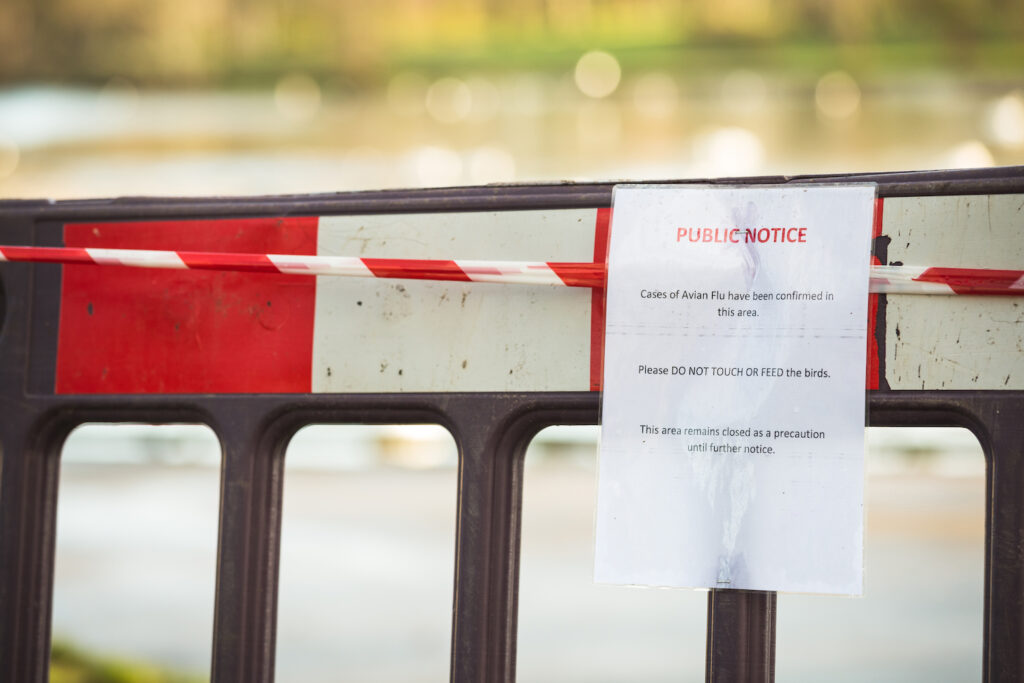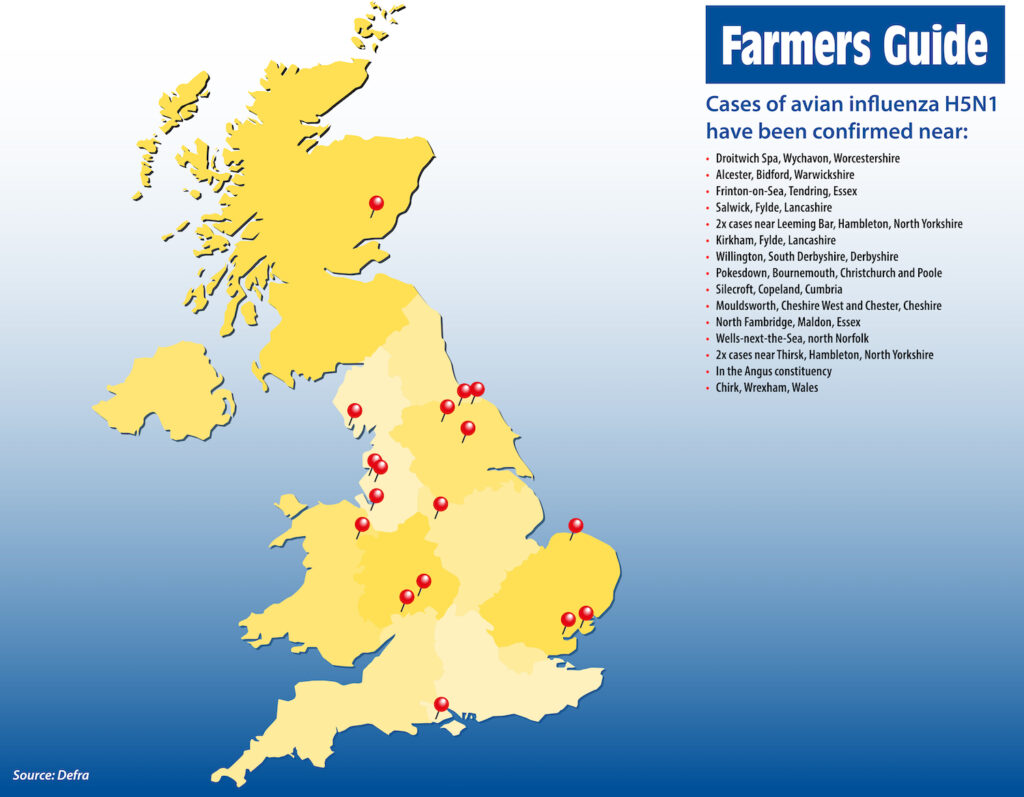Avian flu: UK-wide housing measures to be introduced
24th November 2021
Amid a growing number of confirmed avian flu cases, all UK bird keepers will be required to keep birds indoors and follow strict biosecurity measures.
Chief veterinary officers for England, Scotland, Wales and Northern Ireland have announced new housing measures to limit the spread of avian influenza.
From 29th November, it will be a legal requirement for bird keepers across the UK to keep birds indoors.
Keepers must also continue taking extra precautions to keep their flocks safe. This includes regularly cleaning and disinfecting equipment, clothing and vehicles when entering or exiting sites and limiting access to non-essential workers or visitors.
Housing measures have been in place in parts of North Yorkshire since Sunday (21st November) following a number of confirmed and suspect cases of H5N1 in poultry in the area.
Chief vets are encouraging bird keepers to use the next five days to prepare for the new housing measures, including taking steps to safeguard animal welfare, consult their vet and put up additional housing where necessary.
Strengthened biosecurity regulations were also brought in across Great Britain as part of the Avian Influenza Prevention Zone (AIPZ) on 3rd November 2021, and in and Northern Ireland on 17th November 2021.
In a joint statement the UK’s four chief veterinary officers said: “We have taken swift action to limit the spread of the disease and are now planning to introduce a legal requirement for all poultry and captive bird keepers to keep their birds housed or otherwise separate from wild birds.”
“Whether you keep just a few birds or thousands, from Monday 29th November onwards you will be legally required to keep your birds indoors, or take appropriate steps to keep them separate from wild birds. We have not taken this decision lightly, taking this action now is the best way to protect your birds from this highly infectious disease.”
Poultry and captive bird keepers are advised to be vigilant for any signs of disease in their birds and any wild birds, and seek prompt advice from their vet if they have any concerns.
Poultry keepers must now do the following:
- House or net all poultry and captive birds to keep them separate from wild birds
- Cleanse and disinfect clothing, footwear, equipment and vehicles before and after contact with poultry and captive birds – if practical, use disposable protective clothing
- Reduce the movement of people, vehicles or equipment to and from areas where poultry and captive birds are kept, to minimise contamination from manure, slurry and other products, and use effective vermin control
- Thoroughly cleanse and disinfect housing on a continuous basis
- Keep fresh disinfectant at the right concentration at all farm and poultry housing entry and exit points
- Minimise direct and indirect contact between poultry and captive birds and wild birds, including making sure all feed and water is not accessible to wild birds.
There have so far been 17 cases of highly pathogenic H5N1 avian influenza this season, which began on 26th October:


